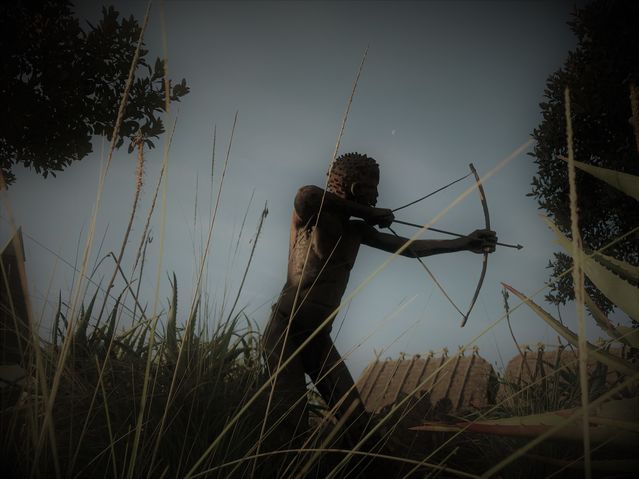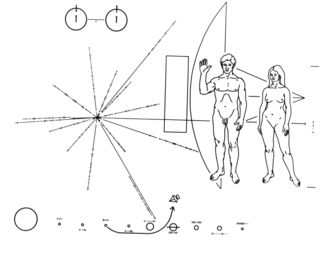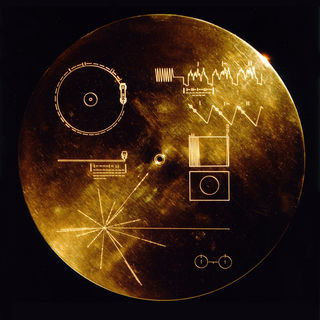Intelligence
When Worlds Collide
The moral case for limited contact with ‘lost tribes.’
Posted February 7, 2019

What should be done about so-called “lost tribes”? Nothing? Leave them alone? That's probably what most people would say. But what about some low level of thoughtful interaction? Is it possible that this is the right thing to do?
Small, secluded pockets of tribal peoples are exceedingly rare, and it’s possible that none live in total isolation anymore, but they raise an important moral question worth considering. Most thoughtful well-meaning people today likely favor a strict no-contact policy. This is understandable, of course, given that the history of such interactions is a horror show that includes the introduction of deadly diseases, exploitation, enslavement, and murder. Even considering all of that, however, a no-contact position may not hold the moral high ground. This is not to suggest that safe and constructive contact would not be difficult.
THE MISSIONARY’S MISADVENTURE. The recent death of Christian missionary John Allen Chau exemplified some of the problems with incompetent or misguided intrusions. Chau sought to interact with the Sentinelese, a small population of island people in the Indian Ocean. His objective was to convert them to his religion. But the Sentinelese have a reputation for repelling strangers with violence. One or more of the Sentinelese people promptly killed the young American on the beach.
Chau’s quest not only cost him his life but may have also endangered the entire Sentinelese population. Isolated people often lack evolved immunity protections against viruses that have been present in large and connected populations for a long time. Something like a flu infection, for example, could have the potential to wipe out an entire society in a month or two.
This means that, short of everyone wearing a hazmat suit, safe physical or close contact between outsiders and remote peoples may not be possible in the foreseeable future. Chau probably meant well from his perspective, but his lack of awareness about the disease threat is inexcusable because it has been so prominent in world history. Best known is the tragedy of many millions of Native Americans dying from infectious diseases brought unknowingly to the New World by Europeans five centuries ago. Some experts estimate that more than 80 percent of the Caribbean, South American, Central American, and North American populations died from diseases of European origin. High numbers of native Australians were lost in this way as well. So, does this specific obstacle mean that an absolute no-contact policy is necessary for the health and safety of the Sentinelese and others like them? No, it does not.
THE GIFT OF KNOWLEDGE. It is possible to make contact—perhaps not close physical contact—but contact in the form of information sharing is possible. It doesn’t take much imagination to come up with ways to do it. An offering of “outside knowledge” could be prepped and packaged in the Johnson Space Center clean room to minimize risk of infection. The presentation could be airdropped and left for the people on the ground to either burn on sight or analyze and learn from. Of course, this raises another question: Should we? Some maintain that such people ought to be left as pure and unspoiled by modernity as possible. This may be a noble sentiment, but these are not giraffes and rhinos in a conservation park. They are human beings. Intellectually abandoning them, denying them some minimal level of awareness about the outside world, prehistory, history, science, and space may amount to condescending paternalism or just plain neglect.
How can anyone claim to know that these people, at least some of them, would not want the chance to learn a few of the things their urbanized kin have achieved and figured out? It is understandable that isolated people tend to avoid contact and sometimes react violently to it because of the way outsiders have treated them in the past. Nonetheless, it is reasonable to suspect that they might appreciate knowing something about the formation and current layout of the solar system, majestic zebras, elephants and tigers, World War II, or the space station that soars over them on the occasional dark night. Is it morally justifiable to just leave them alone with no chance of ever hearing the deeper evidence-based stories of their species, their planet, and their universe? If scientific and historical knowledge enriches our lives, then why wouldn’t it do the same for them?
If we truly respect and care about these people, then we must do the necessary work to protect them from exploitation while also ensuring their safety from close contact with potentially contagious trespassers. But none of that precludes sharing with them some bits of outside knowledge in ways that would afford them the chance to accept or reject it.
Why not parachute in a brief illustrated survey of world history? After all, it’s their world and their history, too. If you are balking at any of this, it may help to consider the fact that almost all the knowledge you carry in your head crossed at least a few cultural borders before reaching you. So, how about an illustrated album that includes living and extinct animals, Hubble Space Telescope images, world fashions, and city scenes? A photo of their home planet, taken from space by an Apollo astronaut, would make a nice gift as well. Who would assume that they would not appreciate prints of paintings by Van Gogh, Picasso, and Rembrandt? Is someone really going to argue that Monet’s water lilies are not for all people everywhere? What about sharing a little music? Just who do we think we are to deny them the potential pleasures of Mozart and Bob Marley? And while we’re at it, why not deliver some life-saving educational material, too?
For example, a simple graphic explanation of the importance of avoiding unclean drinking water and basic sanitation practices might save some of their babies and boost overall life expectancy. Keep in mind that you didn’t figure out any of those things for yourself. People of another culture and time did, and you were fortunate enough to have it passed on to you. So how can it be ethical and decent to withhold the most basic life-saving knowledge from your fellow humans today? Imagine trying to explain the morality of a no-information-sharing policy to a mother as she cradles her suffering infant on the verge of dying from preventable dysentery. While discussing this, a friend of mine injected climate change into the issue. Do secluded peoples not have a right to know that their environment is undergoing rapid changes because of the outside world’s activities over the last century? The Sentinelese, for example, live on a small island. Is there no moral obligation to warn them about the potentially disruptive and deadly consequences of sea-level rise for their society?
To be clear, I am not suggesting we offer the Sentinelese a Starbucks franchise or give a Netflix account to every tribe in the Amazon. I understand that there are many factors to consider before acting. Serious thought would need to be given about what knowledge is best to share. No one wants to spark another cargo cult, overwhelm or panic a society that has been smart enough and independent enough to endure mostly on its own, possibly for thousands of years. People and cultures are generally more flexible than we imagine, but too much of the wrong information shared too fast could cause unhealthy confusion, stress and disruption. Perhaps the ideal scenario would be for a special committee of cultural anthropologists, psychologists, historians, archaeologists, and linguists to formulate a sensible plan, one with a careful selection of limited knowledge offered at a gentle pace.
Anyone concerned that this essay is a distasteful exhibition of haughty cultural conceit or mere run-of-the-mill racism can relax. Read my words. This is no call for arrogant assimilation or intellectual colonialism. I simply believe that a balance can and should be found between respecting small, specific human subcultures and the greater human culture we all can share. Moreover, I suspect that remote people currently living more traditional lifestyles have much to teach the rest of humanity. Ideally, information sharing would be a two-way street.
In my new book, At Least Know This: Essential Science to Enhance Your Life, I detail what was lost in the transformation from small, mobile, and highly collaborative groups of hunters and gatherers to sedentary, socially stratified, agriculture-dependent urbanites. Civilization brought with it many benefits, of course, but there were steep costs, too. Today many people are lonely within crowds, living out stressful lives surrounded by strangers inside of innately foreign, noisy and toxic environments. I would not be surprised, for example, if the Sentinelese and other similar tribal people are, on average, happier and more content than most people living in the world’s great cities. Tough as their lives may be, they probably experience the richness of community, the rewards of sharing, and a sense of being relevant and needed at levels few others do. It may be that they are more awake, more alive, more human than anyone.
INVOKING THE PRIME DIRECTIVE. Star Trek fans undoubtedly will think of the “prime directive” in the context of “lost tribes.” A supreme law within the fictional Star Trek universe, it forbids influencing cultures that have not yet achieved warp capability in space travel. The idea is to let non-Earth species evolve and mature on their own, without human or Starfleet contamination. Sounds like a sensible and highly principled rule, right? Perhaps it is, but the idea of something like the Prime Directive does not apply to our challenge because “lost tribes” are not extraterrestrial lifeforms living on alien worlds. “They” are us.
Let’s return to reality but stay with the space theme for another moment. More thought, money, and passion have gone into sharing knowledge with possible extraterrestrials in deep space than to our own fellow humans who are right here living beside us. NASA launched the Pioneer 10 and 11 probes in the early 1970s to explore Jupiter and the asteroid belt. Each one carried a “message from mankind” in the form of a plaque. The idea was that this basic information might help some extraterrestrial intelligence understand something about us should they encounter one of the probes. On these plaques are two nude humans, a representation of the hydrogen atom (most abundant element in the universe) to give some indication of our scientific knowledge, the Earth’s position relative to other planets in the solar system, and the Sun’s location relative to the center of our galaxy.


NASA launched the two Voyager probes in 1977. Originally tasked with studying Saturn, Jupiter and other bodies in our solar system, these remarkably successful and inspirational missions are still operational and continue to return data. Voyager 1 entered interstellar space in 2012. Voyager 2 did so in 2018. Each of these probes carries a gold record that is loaded with images, voices, music, and sounds representing Earth. An official statement about the Voyager mission from then President Jimmy Carter included these words: “This is a present from a small distant world, a token of our sounds, our science, our images, our music, our thoughts, and our feelings.”
Let’s think about this for a moment. We—the urbanized, high-tech, hyper-connected, scientific thinkers and explorers of Earth—may reach out to share knowledge with extraterrestrial life, to “all worlds” (as is etched on the surface of the gold record). But reaching out to share knowledge with human life is somehow wrong?
Perhaps it would be helpful this point to state the obvious. Today’s remote, mostly isolated tribal people are full-fledged members of Homo sapiens, which is one of the youngest and most closely related species alive on Earth today. Their genetic code is 99.9 percent identical to yours. These are modern humans living in the modern world. They may not have the same accumulated body of knowledge, global awareness, and technological capabilities, but they are family.
What if we were to learn tomorrow that an advanced extraterrestrial civilization had been observing us for many years and could have communicated with us anytime but chose not to because our culture is relatively primitive? The revelation about extraterrestrial life would thrill me to no end, but I would resent their callous neglect. Fine if they can’t trust us with the instructions for building super-duper ray guns or achieving high-speed interstellar travel. Given our irrational and violent tendencies, this would be totally understandable, no argument from me there. But couldn’t they have at least dropped me a copy of their simplest, easy-to-understand atlas of the universe and maybe the latest census of life in the galaxy, too? Cures for cancer and heart disease would have been much appreciated, as well. What kind of arrogant, condescending species would think that it’s morally acceptable to leave me isolated and intellectually marooned on Earth in the 21st century? I want to know things. It’s a human trait.
Imagine a gifted Sentinelese girl, 7- or 8-years old. She is living out her life on a tiny island, cut off from the rest of humanity. She sits alone on the beach and, with her powerful, modern human brain, looks to the horizon. Curious and thoughtful because she is human, the girl wonders what amazing, dangerous, ugly, and beautiful things could be out there somewhere. At night she looks up at the clear sky above and wonders about all those lights. Should this girl live out her life never having heard anything about 50-foot-tall dinosaurs, the epic journeys of Homo erectus, the glories of ancient Egypt and Greece, microbial life, the Apollo Moon landings, redwood trees, and the larger world that is her home?




